Life
Sign up for our newsletter
We summarize the week's scientific breakthroughs every Thursday.
-
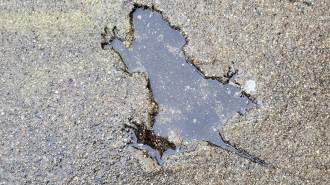 Animals
AnimalsThe viral Chicago ‘Rat Hole’ almost certainly wasn’t made by a rat
Researchers used methods from paleontology to analyze the quirky local landmark, created when a rodent of a certain size fell into wet concrete.
By Amanda Heidt -
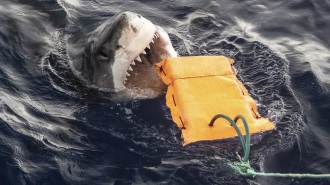 Materials Science
Materials ScienceNew wetsuit designs offer a layer of protection against shark bites
By weaving Kevlar or polyethylene nanofibers into standard neoprene in wetsuits, researchers found ways to limit injury during rare encounters with sharks.
By Carly Kay -
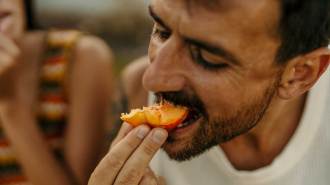 Neuroscience
NeuroscienceBrain scans reveal where taste and smell become flavor
The findings show the insula fuses taste and certain smells into the sensation of flavor.
-
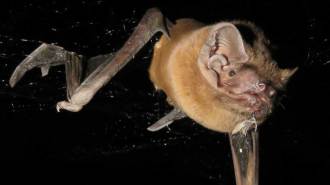 Animals
AnimalsMic’d bats reveal midnight songbird attacks
Sensor data reveal greater noctule bats chasing, catching and chewing on birds during high-altitude, nighttime hunts.
-
 Animals
AnimalsToy-obsessed dogs give clues to addictive behaviors
Some dogs love playing with toys so intensely they can’t stop—offering scientists a window into behavioral addictions.
- Animals
What the longest woolly rhino horn tells us about the beasts’ biology
A nearly 20,000-year-old woolly rhino horn reveals the extinct herbivores lived as long as modern-day rhinos, despite harsher Ice Age conditions.
By Jake Buehler -
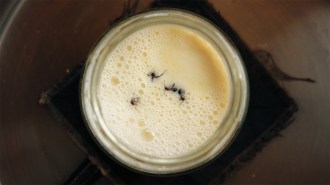 Microbes
MicrobesTo make a tasty yogurt, just add ants (and their microbes)
Spiking milk with live ants makes tangy traditional yogurt. Researchers have identified the ants' microbial pals and enzymes that help the process.
- Artificial Intelligence
AI-designed proteins test biosecurity safeguards
AI edits to the blueprints for known toxins can evade detection. Researchers are improving filters to catch these rare biosecurity threats.
- Plants
How dandelions rig the odds for catching upward gusts
New images reveal microstructures that, depending on how the wind blows, help give a dandelion seed lift-off or the grip needed to wait for a better breeze.
By Susan Milius -
 Agriculture
AgricultureA grapevine bacteria may help douse wildfire-tainted wine’s ashy aftertaste
Grape plant bacteria might help mitigate smoke taint in wine by breaking down chemicals that evoke an ashy taste.
By Carly Kay -
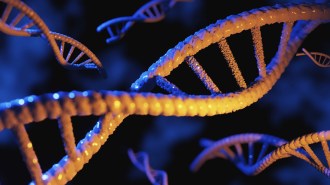 Genetics
GeneticsAI generated its first working genome: a tiny bacteria killer
Bacteriophages designed with AI kill E. coli faster than a well-studied strain, but the tech needs regulation before moving beyond lab dishes.
-
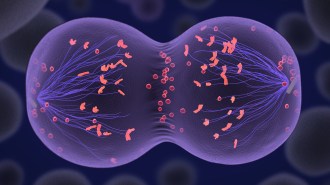 Health & Medicine
Health & MedicineScientists made human egg cells from skin cells
More work needs to be done to create viable human embryos, but the method might someday be used in IVF to help infertile people and male couples.